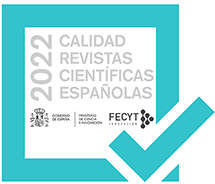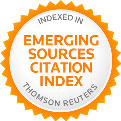Recomendaciones para el apoyo psicológico a jóvenes deportistas en los centros de alto rendimiento. [Tips to the psychological support to young athletes in high performance centers].
Resumen
En el contexto deportivo el alto rendimiento constituye uno de los tópicos que más interés ha suscitado en la literatura y que más demanda genera a nivel aplicado. A raíz de la evidencia disponible, las organizaciones deportivas e instituciones han definido estrategias de captación y formación de jóvenes deportistas, destinando recursos económicos, materiales y humanos con el objetivo de maximizar su potencial. Los Centros de Alto Rendimiento (CAR) y los centros de Tecnificación Deportiva (CTD) constituyen un buen ejemplo de ello. Hoy en día la mayoría de estos centros cuentan con equipos multidisciplinares donde conviven diferentes tipos de profesionales: desde preparadores físicos, médicos, nutricionistas, recuperadores, hasta psicólogos del deporte. Precisamente la supervisión de los aspectos psicológicos vinculados al alto rendimiento ha cobrado una mayor importancia en los últimos años. En el presente trabajo, la evaluación realizada a 57 jóvenes residentes en el Centro Galego de Tecnificación Deportiva de Pontevedra ha permitido identificar algunas claves para proporcionar un adecuado apoyo psicológico a los deportistas en formación. Más aún, la información obtenida se traduce en recomendaciones que facilitan el trabajo diario de los entrenadores y contribuye a una mayor optimización de los recursos invertidos.
Abstract
In the context of sport, high performance became in one of the topics that has raised most interest in literature and has generated a great demand in applied level. Following the evidence, sports organizations and institutions have defined recruitment and training strategies for young athletes, allocating financial, human and material resources in order to maximize their potential. Today, much of these centers have multidisciplinary teams with different types of professionals: from trainers, doctors, nutritionists, retrievers, to sport psychologists. Indeed monitoring the psychological aspects related to high performance has gained a special importance in recent years. In this paper, the assessment to 57 young residents in the Sports Technifying Center of Pontevedra has allowed to identify some keys to provide adequate psychological support to athletes in training. Moreover, the information obtained is translated into recommendations that facilitate the daily work of the coaches and contributes to greater optimization of the resources invested.
http://dx.doi.org/10.5232/ricyde2013.03304
---------------------------------------------------------------------
Referencias/references
Almagro, B. J.; Saénz-López, P.; González-Cutre., D., y Moreno-Murcia, J. A. (2011). Clima motivacional percibido, necesidades psicológicas y motivación intrínseca como predictores del compromiso deportivo en adolescentes. RICYDE. Revista Internacional de Ciencias del Deporte, 25(7), 250-265.
http://dx.doi.org/10.5232/ricyde2011.02501
Barling, J., & Abel, M. (1983). Self-efficacy beliefs and tennis performance. Cognitive Theory and Research, 1, 265-272.
http://dx.doi.org/10.1007/BF01205140
Beddie, C. J.; Terry, P. C., & Lane, A. M. (2000). The Profile of Mood States and athletic performance: Two meta analyses. Journal of Applied Sport Psychology, 12, 49-68.
http://dx.doi.org/10.1080/10413200008404213
Deci, E. L., & Ryan, R. M. (1985). Intrinsic motivation and self-determination in human behavior. New York: Plenum.
PMid:3841237
Deci, E. L., & Ryan, R. M. (2000). The "What" and "Why" of goal pursuits: Human needs and the self-determination of behaviour. Psychological Inquiry, (11), 227-268.
http://dx.doi.org/10.1207/S15327965PLI1104_01
Gimeno, F.; Buceta J. M., y Pérez-Llantada M. C. (2007). Influencia de las variables psicológicas en el deporte de competición: evaluación mediante el cuestionario características psicológicas relacionadas con el rendimiento deportivo. Psicothema, 19, 667-672.
PMid:17959124
González-Cutre, D.; Sicilia, A., y Fernández, A. (2010). Hacia una mayor comprensión de la motivación en el ejercicio físico: medición de la regulación integrada en el contexto espa-ol. Psicothema, 22(4), 841-847.
PMid:21044522
Iso-Ahola, S. (1977). Effects of self-enhancement and consistency on casual and trait attributions following success and failure in motor performance. Research Quarterly, 48, 717-726.
PMid:271317
Kumar, A.; Pathak, N., & Thakur, G. P. (1985). Self esteem in individual athletes, team members, and nonathletes. Perceptual and Motor Skills, 61, 179.
http://dx.doi.org/10.2466/pms.1985.61.1.178
McNair, D. M.; Lorr, M., & Droppleman, L. F. (1971). Manual for the Profile of Mood States. San Diego, CA: Educational and Industrial Testing Service.
PMCid:1812023
Morgan, W. P., & Pollock, M. L. (1977). Psychological characterization of the elite distance runner. Annals of the New York Academy of Science, 301, 382-403.
http://dx.doi.org/10.1111/j.1749-6632.1977.tb38215.x
Ogilvie, B. C. (1968). The unconscious fear of success. Quest, 10, 35-39.
http://dx.doi.org/10.1080/00336297.1968.10519643
Olmedilla, A. (2005). Factores psicológicos y lesiones en futbolistas: un estudio correlacional. Murcia: Quaderna.
PMCid:1768940
Renger, R. (1993). A review of the Profile of Mood States (POMS) in the prediction of athletic success. Journal of Applied Sport Psychology, 5, 78-84.
http://dx.doi.org/10.1080/10413209308411306
Ryan, R. M., & Deci, E. L. (2000). Self-determination theory and the facilitation of intrinsic motivation, social development and well-being. American Psychologist, (55), 68-78.
http://dx.doi.org/10.1037/0003-066X.55.1.68
Sánchez-Oliva, D.; Leo, F. M.; Sánchez-Miguel, P. A.; Amado, D., y García-Calvo T. (2010). Relación del clima motivacional creado por el entrenador con la motivación autodeterminada y la implicación hacia la práctica deportiva. RICYDE. Revista Internacional de Ciencias del Deporte, 20(6), 177-195.
http://dx.doi.org/10.5232/ricyde2010.02001
Standage, M., & Treasure, D. C. (2002). Relationship among achievement goal orientations and multidimensional situacional motivation in physical education. British Journal of Educational Psychology, 72, 87-113.
http://dx.doi.org/10.1348/000709902158784
PMid:11916466
---------------------------------------------------------------------
Palabras clave/key words
Texto completo/Full Text:
PDF------------------------ 0 -------------------------
RICYDE. Revista Internacional de Ciencias del Deporte
![]()

Publisher: Ramón Cantó Alcaraz
ISSN:1885-3137 - Periodicidad Trimestral / Quarterly

